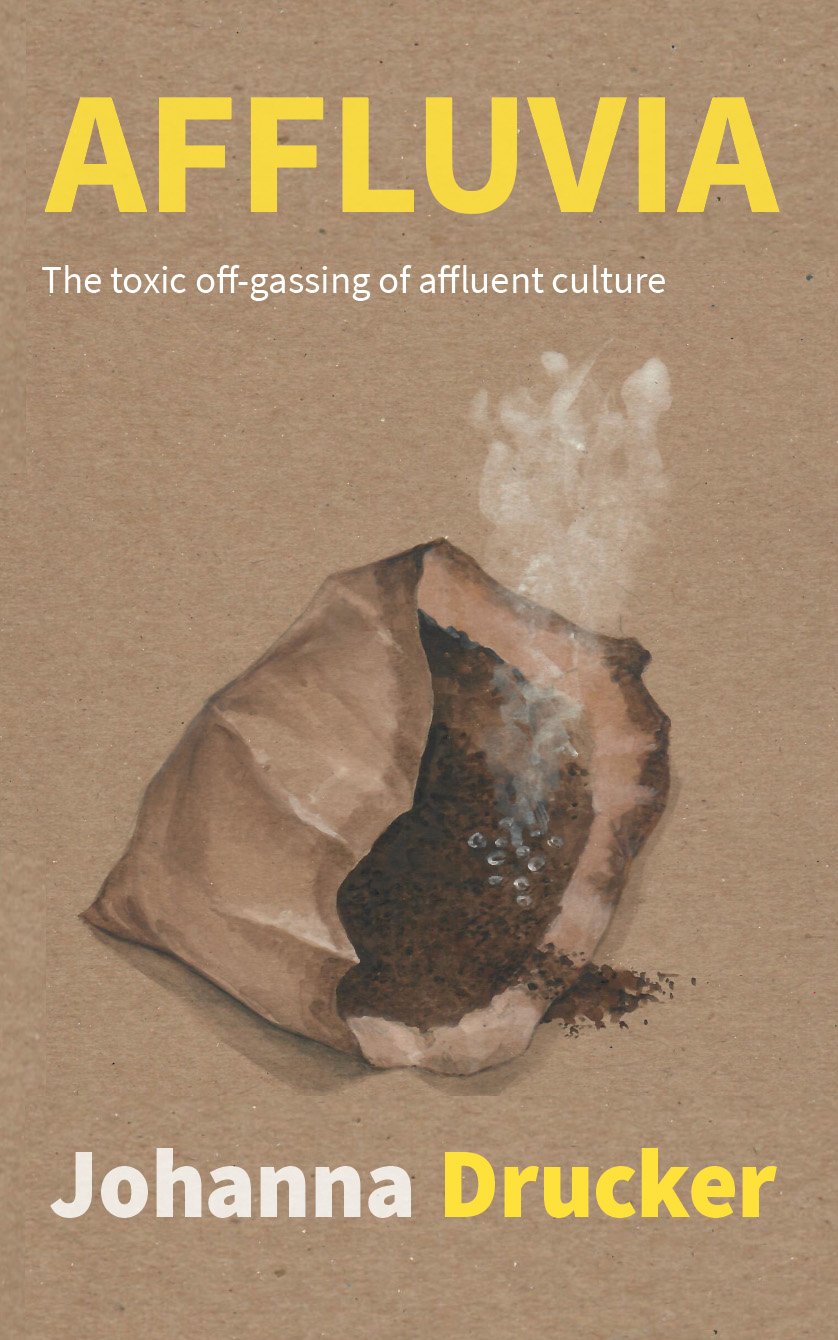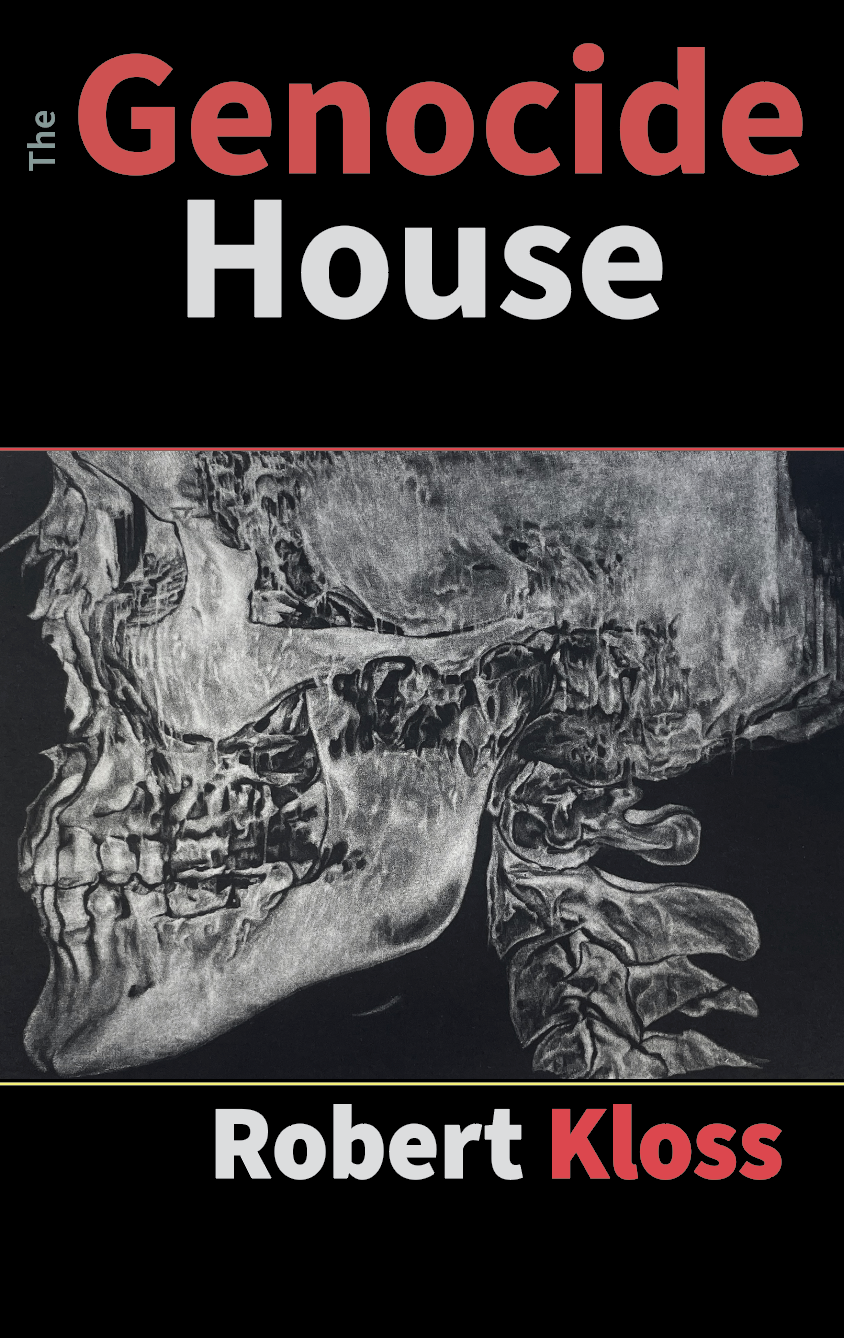AFFLUVIA: The toxic off-gassing of affluent culture.” by Johanna Drucker
AFFLUVIA: The toxic off-gassing of affluent culture.” by Johanna Drucker
Affluvia is a neologism for the “toxic off-gassing of affluent culture.” Approximately 60,000 words, the text is focused entirely on tracking the ecological costs of the author making coffee and feeding her cats every morning. The actions take less than ten minutes, but they are connected to complex networks of industrial production, extraction industries, human rights and labor issues, pollution of air and water, and destruction of human and animal habitat. The illustrated study breaks the coffee making and pet feeding into component parts—the lifecycle of the beans, coffee grinder, coffee maker, pet food, aluminum can, label, bowls and spoon—and profiles each in turn.
“This study exposes the connections between seemingly ordinary patterns of contemporary life and the global systems to which they are connected. Tracking the lifecycle of familiar objects creates a vivid, dramatic narrative–with shocking implications for understanding every aspect of our (generally unexamined) daily routines.” —Johanna Drucker
PRAISE FOR AFFLUVIA
“Let the world now discover what the American Academy of Arts and Letters and legions of loyal readers have known for years: The writer and visual artist Johanna Drucker is a polymath's polymath. Both deadly serious and seriously daffy, her new book marries the precise, prosaic poetry of Nicholson Baker circa The Mezzanine with the sheer fact-love of The New Yorker during the Harold Ross years. I will never look at my morning decaf, my neighbor's cats, or L.A.'s Hyperion Sewage Treatment Plant the same way again. The word ‘affluvia’ belongs in the dictionary, and Johanna Drucker belongs in the pantheon of cockeyed, sui generis American genius.”
— David Kipen, former literature director of the National Endowment for the Arts and author of Dear Los Angeles: The City in Diaries and Letters, 1542 to 2018 (2018), and The Anniversarist (Forthcoming)
“How we humans organize our world is reflected in our daily rituals, if we take the time and look carefully enough. This brilliant meditation – with lovely images – encourages us to appreciate the world slowly and change rather than act quickly and stay stuck.”
— Geoffrey C. Bowker, Professor of Informatics and Director of the Design Lab at The University of California at Irvine and author of Sorting Things Out: Classification and Its Consequences (with Susan Leigh Star, 1999) and Memory Practices in the Sciences (2005).
“Imagine Isabelle Stengers breaking into Georges Perec’s office, then spending the evening carefully and meticulously annotating everything in sight. In Johanna Drucker’s Affluvia, everyday life unfolds fractally into the wicked problem it always was, investing Oulipan procedure, finally, with the political economy it always needed.”
— Darren Wershler, Research Chair in Media and Contemporary Literature at Concordia University in Montréal, author of The Iron Whim: A Fragmented History of Typewriting (2005) and Guy Maddin's My Winnipeg (2010)
“Johanna Drucker plays a wide-eyed internet detective in Affluvia, tracing each element of her morning ritual through the impossibly complex webs of production, distribution, and exploitation that radiate outward “like an exploding galaxy, a four-dimensional weave of interlocking patterns across space and time.” Charting relations among these gaseous bodies, Drucker works to demystify the networked toxicities that inhere within even the most innocent moments of the everyday. By turns wondrous and monstrous, we find it is no longer the flapping of a butterfly’s wings, but the ordinary pouring of a morning cup of coffee (set to the tune of purring felines) that might spill over to reveal the contours of the planetary, to reimagine what it might mean to dream of a sustainable future.”
— Daniel Scott Snelson, writer, editor, archivist and Professor in the Departments of English and Design Media Arts at UCLA and author of Radios (2016), EXE TXT (2015), Epic Lyric Poem (2015), and Inventory Arousal (2011). His forthcoming book, The Little Database: A Poetics of Media Formats, is forthcoming with the University of Minnesota Press in June 2025




